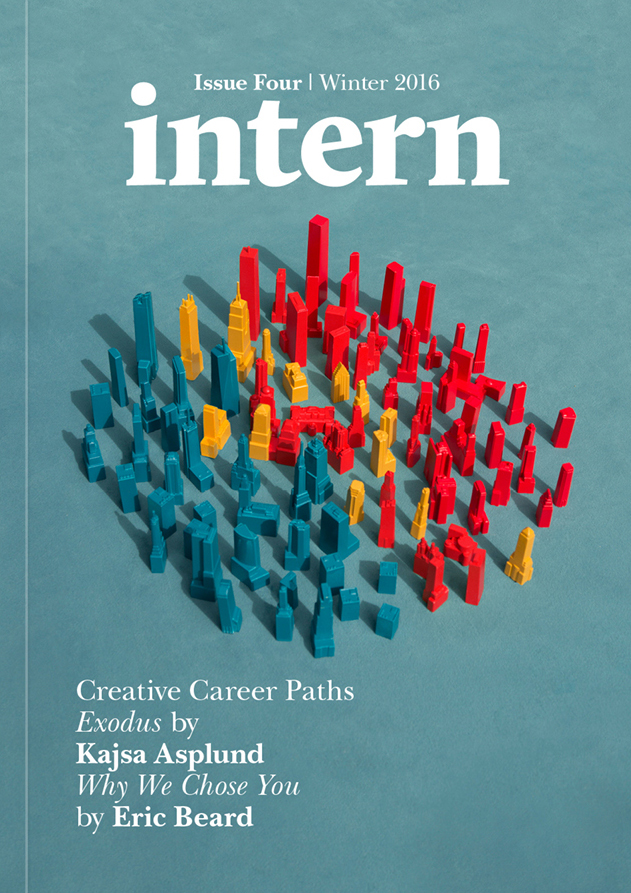 For many of us, the current social questions and economic issues play themselves out incessantly in digital media. And it’s pretty easy to see where someone falls, based on their comments or the kind of reporting they are doing.
For many of us, the current social questions and economic issues play themselves out incessantly in digital media. And it’s pretty easy to see where someone falls, based on their comments or the kind of reporting they are doing.
One such issue that’s currently hot is the idea of unpaid internships – long a staple of “earning your stripes” in the creative world, there is a lot of opposition to the idea of unpaid labor.
Alec Dudson, founder and publisher of print magazine Intern, knows the space well. In fact, it was through internships that he gained the experience and motivation he needed to actually launch his publication.
“Even when I was interning at Boat, which must have been a good six months after I first saw it, I didn’t have any aspirations to try and do something myself,” Dudson said to MagCulture’s Jeremy Leslie. “I was just interested to see the process that was behind it and work out if I could be a part of it; and whether or not I actually wanted to. Often these things seem lovely to the eye but you go behind-the-scenes and there is a lot of hard work and obstacles that put you off.”
The interview offers an intimate look into the intern experience that led to Dudson’s interest in publishing this magazine; it led to his desire to find some meaningful way to stay involved in the industry.
“I was determined then that the concept of the magazine had to be strong and without that, without something to clearly make it stand out from the other magazines, I didn’t really stand a chance,” he explains. “The idea with Intern was that it was always going to have a clearly marked audience – young people who were looking to work out their journey into the creative industry.
“The hope was that each year there’d be another batch of graduates and another batch of people starting to study or getting interested in the industries that would potentially be a fresh readership,” Dudson continues.
After successfully funding the initial issue through Kickstarter, the magazine continues to grow. Like many indie magazines, the price is absolutely justified by the quality of the experience.
“By the time you pay £8 for the magazine, it’s a very different experience to quickly scrolling down something on the web,” Dudson notes. And while he has definite personal opinions on the subject, the magazine intentionally takes no position.
“The moment we start having too politicised an agenda with the magazine, its ability to offer a balanced discussion is completely undermined,” he explains. “While my personal views are that unpaid internships need to end – they’re already illegal, it’s just not enforced – the moment the magazine starts doing that it heads down quite a narrow path and the content would become quite same-y.”
One thing is certain, though. The value of appearing in print has great career advantages for Intern’s contributors.
“From an employer’s point of view, being published in print makes them sit up and notice. If that plays out and works out for our contributors, for me that’s more of an important effect of the magazine than it having a kind of influence. It’s more likely to have an effect on a one to one basis than start a kind of movement.”
Maybe so, but Intern seems to be quickly settling into the larger indie magazine movement, with compelling content, clear editorial direction that leads to a quality read, and a founder with an unshakeable passion for the indie life.
